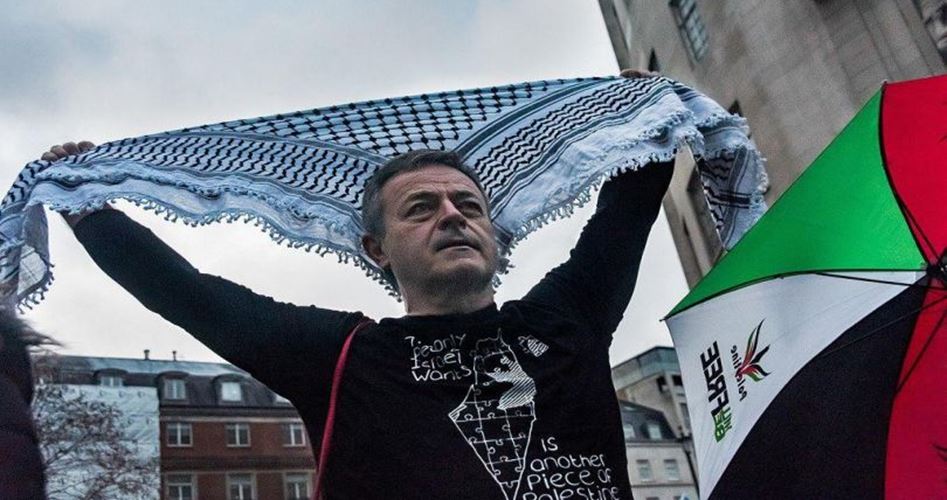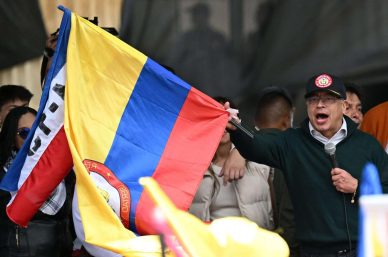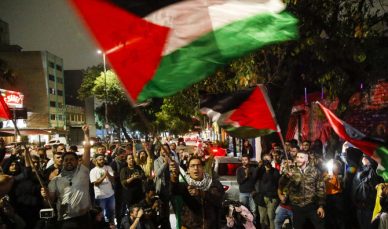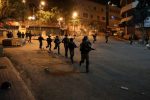When a Palestinian moves or walks in cities and neighborhoods of Brazil Chile El Salvador or any other Latin American country he or she will not feel lonely or like a stranger as the Palestinian flag and stickers of the flag can be seen on many buildings cars shops walls and so on.
If a person from Palestine visited an Arab restaurant in Brazil he will see a picture of the Aqsa Mosque in the middle of its wall and if he traveled to El Salvador to attend a local event he would see Palestinian flags being held or waved among the country’s flags.
Nearly one million Palestinians live in Latin American countries which have different cultures economies and social conditions. These countries have been for long decades like one huge open refuge for the Palestinians who left their homeland as a result of the Israeli occupation and its crimes.
The Latin continent is not a mere place for these Palestinians to live in but it is also a land in which they have got the chance to make investments champion their national cause and assert their identity and existence.
The story began in the late 19th century when the first Palestinian immigrants and others traveled thousands of miles to reach the Latin continent using Ottoman travel documents. Since these Palestinians and other Arab immigrants traveled with passports issued by the Turkish authorities at the time it led to a misunderstanding in Latin America of identifying them as “Turcos.”
There were many reasons that prompted those Palestinians to travel to the unknown. Some of them immigrated to this continent in particular either to escape political persecution avoid military service or find job opportunities.
Upon their arrival in the Latin continent the first Palestinian immigrants relied heavily on agriculture trade and the marketing and selling of handicrafts such as those made of wool and olive wood.
Then came the second largest wave of immigrants from the Middle East to Latin America before the Palestinian Nakba (catastrophe) in 1948 — mostly from Palestine — as a result of economic crises and the general political situation that led up to the Nakba. From then until the early 70s most of the Palestinian immigrants headed for specific countries in the Latin continent namely Chile Peru Honduras El Salvador Brazil and Venezuela.
Simaan Khoury head of the Palestinian Community Federation in Latin America told Quds Press that the number of the Palestinians in the Latin continent is the greatest compared to other Palestinian communities across other regions of the world.
Chile however is home to the largest and oldest Palestinian diaspora community outside of the Arab world and in the Latin continent and their number is estimated at nearly half a million Khoury noted.
At the present time the economic and social levels of the Palestinian citizens in Latin America vary according to Khoury.
“Some of them are poor but they are a minority. There are also rich and middle-class people among them and they constitute a large segment and as for the number of the wealthy people it is large and noticeable as well” he added.
During the second half of the 20th century the Palestinians in Latin America became more empowered in various sectors of the economy in general and they became most renowned for their involvement in textile trading and production. Their achievements grew up steadily throughout the years until they have become today a significant element in the Latin American countries — where their political social and economic contributions are widely visible.
Many prominent Palestinian names have also emerged within the upper echelons of society in Latin America such as businessmen writers celebrities and politicians. Some of them even came to power like Salvadoran president Najib Abu Kila whose mother is from Bethlehem and his father is from Jerusalem.
Khoury pointed out that many Latin American Palestinians wield considerable influence on the societies in which they live and their institutions businesses and companies provide job opportunities for wide segments of the local populations.
About 45 percent of the workforce in El Salvador he said is hired by Palestinian employers who have a significant share of the national income.
Such contributions to the Latin American societies have enabled many Palestinians to gain important economic and political influence he said.
“The strong relations that have been established by members of the Palestinian community in Latin American countries since the end of the Ottoman Empire have played a major role in having these countries provide political support for the Palestinian cause” he asserted.
He also affirmed that Latin America is one of the world’s biggest supporters of the Palestinian cause and it manifested this support when all its countries recognized the State of Palestine.
“The Palestinians in Latin America are an exemplar of the successful integration into the culture of the host country” Khoury said adding that “accepting differences tolerance and respect for different races and religions are basic Latin values that have helped the Palestinian citizens integrate into society.”
“However such integration was not easy as it faced many challenges not least was the disappearance of the Arabic language among the second and third generations he pointed out.
“Nonetheless they have not forgotten their motherland Palestine as they reflect that in their work homes relationships and the smallest specifics of their lives” he underlined.
“The Palestinian always loves victories in life and this what the occupation should realize. We will not give up our country and we have no life without returning to it” Khoury recalled an expression that was once said by a Palestinian businessman in southern Brazil.















